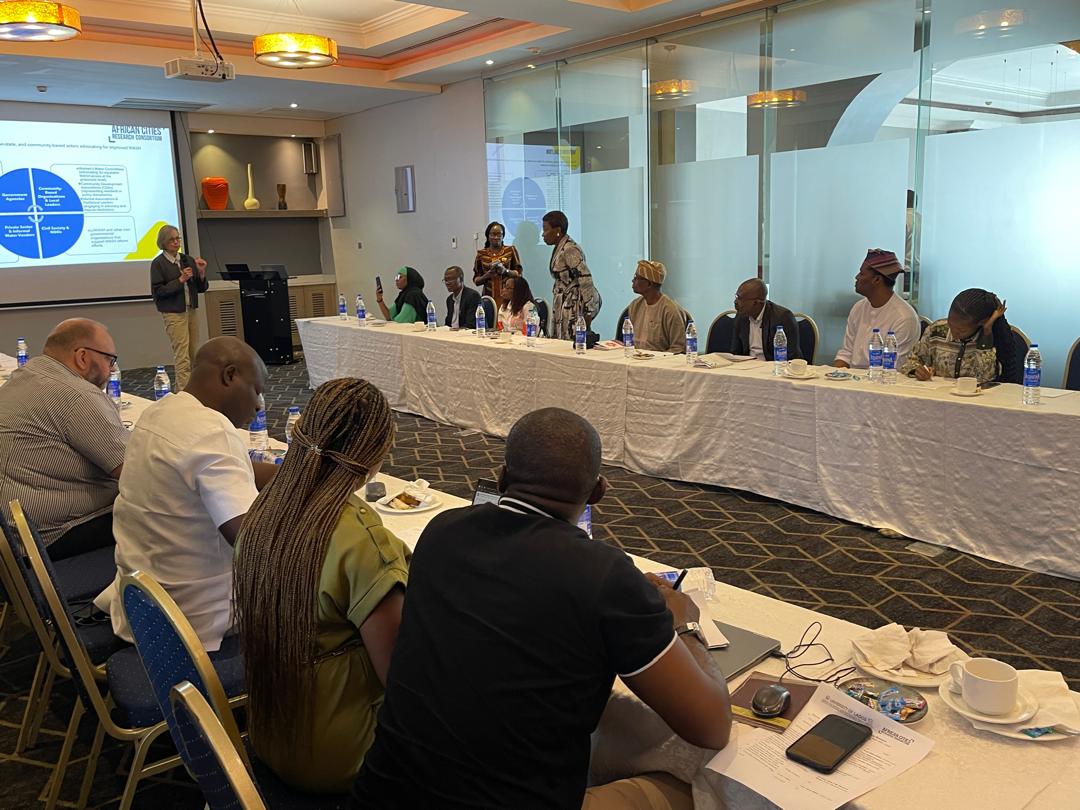General
At 20%, Low Streetlight Coverage Worsens Lagos Crime Rates – ACRC
Published
1 year agoon

The African Cities Research Consortium (ACRC) has revealed that only about 20% of communities in Lagos have functional streetlights.
According to the body of researchers working across 12 African cities including Lagos and Maiduguri in Nigeria, the low streetlights coverage in Lagos is exacerbating crime and insecurity in the state.
Read Also:
Lagos, Nigeria’s commercial nerve centre and home to more than 20 million population, has thousands of communities across its 20 Local Government Areas and 37 Local Council Development Areas, with more than 200 informal settlements.
Presenting the findings on Thursday at a stakeholders technical session organised by the consortium in partnership with the University of Lagos Centre for Housing and Sustainable Development (CHSD), the ACRC’s Action Research Lead for Safety and Security Domain, Adewumi Badiora, explained that the lack of streetlights significantly contributes to high crime rates, identifying area boys, cult groups, trade unions, and even some security operatives as key actors in the city’s insecurity challenge.
Mr Badiora, a PhD certificate holder, is a senior lecturer at the Department of Urban and Regional Planning, Olabisi Onabanjo University, Ago-Iwoye, in Ogun State.
The researcher explained that the absence of streetlights makes movements at night dangerous, particularly for women and girls, even as he cited Uganda as an example of a country where the installation of solar-powered streetlights has reduced crime and boosted economic activity.
He suggested that Lagos could adopt a similar approach, as solar-powered streetlights offer a more sustainable solution to the city’s persistent electricity challenges.
ACRC findings
Findings from research conducted across Lagos Mainland, Lagos Island, and peri-urban areas show that communities with functional streetlights experience reduced crime rates.
Beyond security, Mr Badiora explained that improved streetlighting boosts economic activities, as business owners in newly lit areas reported higher revenue from being able to operate for longer hours without fear of attacks.
However, the study found that streetlight provision and maintenance are often politically driven, with installations concentrated in elite neighbourhoods, leaving informal settlements and lower-income communities in darkness.
The study also highlighted challenges in powering Lagos’ streetlights, noting that reliance on the national grid, diesel, or gas has made maintenance difficult.
To address these issues, the research recommends community involvement in streetlighting projects. Mr Badiora emphasised that by ensuring residents play a role in planning and implementation, sustainability increases and maintenance efforts become more effective.
Community project
In response to these findings, ACRC Lagos is launching a streetlighting action research initiative to improve safety and socio-economic activities in the city.
The initiative will focus on informal settlements like Ajegunle-Ikorodu, where a co-produced lighting strategy will be developed with residents, community groups, and community leaders.
The project prioritises solar-powered streetlights as a cost-effective and sustainable alternative.
Interventions
Meanwhile, the Chief Executive Officer of ACRC and a professor at the University of Manchester’s Global Development Institute, Diana Mitlin, emphasised the need for new approaches to urban development, acknowledging past challenges in effectively addressing city issues.
Ms Mitlin explained that when ACRC was established, it became clear that previous interventions had been limited in their effectiveness due to difficulties in navigating political complexities and integrating multiple urban systems.
She said: “When setting up the African Cities Research Consortium, we recognised that we were not as effective as we wanted to be in the urban space.
“We hypothesised that this was because we did not easily understand how to manage the political complexities of African towns and cities, and we did not fully grasp how to integrate urban systems. Working on one system often had negative implications for others, making well-intentioned interventions ineffective.”
During the project’s foundation phase, ACRC conducted analyses in 12 cities to identify key urban challenges and opportunities.
Ms Mitlin announced that ACRC’s Lagos report is nearing completion and is expected to be soon.
Essence of collaboration
In her remarks, the Chairperson of the ACRC Lagos Engagement Committee, Ayodele Atsenuwa, a professor of Law, emphasised the need to bridge the existing gaps between academia and policymakers through such initiatives as ACRC.
Mrs Atsenuwa, who doubles as the Deputy Vice-Chancellor for Development Services at the University of Lagos (UNILAG), reiterated the importance of intra-African collaboration in research, stating that rather than solely depending on North-South partnerships, African researchers must work together to advance urban development.
She noted that the COVID-19 pandemic underscored the need for deeper academic engagement within the continent.
Also speaking, the Director of CHSD, Timothy Nubi, a professor, reflected on the urban governance challenges in Lagos, describing the city as one with overlapping authorities, where federal, state, and local governments, as well as informal actors such as militant groups, all exert influence.
Mr Nubi highlighted persistent conflicts over land use and urban management, noting that CHSD was established out of necessity and a passion for driving change.
Looking ahead, he commended the recent Supreme Court judgement that grants the release of allocations directly to local government authorities, calling it one of the most significant policy moves in the country in recent years.
Also in attendance at the engagement included the Director of Technical Services at the Lagos State Ministry of Local Government, Chieftaincy Affairs and Rural Development, Biodun Tokuwo; Titilope Akose of the Centre for 21st Issues; Deji Akinpelu of Rethinking Cities; ACRC’s Director of Uptake, Ismail Ibraheem, and the consortium’s Lagos City Manager, Temilade Sesan, among other stakeholders.
Share this:
- Click to share on X (Opens in new window) X
- Click to share on Facebook (Opens in new window) Facebook
- Click to share on WhatsApp (Opens in new window) WhatsApp
- Click to share on Pocket (Opens in new window) Pocket
- Click to share on Telegram (Opens in new window) Telegram
- Click to email a link to a friend (Opens in new window) Email
- Click to share on LinkedIn (Opens in new window) LinkedIn




